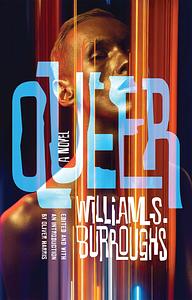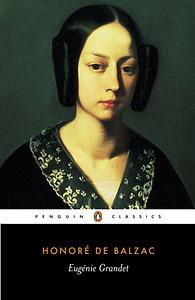Take a photo of a barcode or cover
davidaguilarrodriguez's Reviews (186)
challenging
dark
reflective
medium-paced
Plot or Character Driven:
Character
Strong character development:
Yes
Loveable characters:
Complicated
Diverse cast of characters:
No
Flaws of characters a main focus:
Complicated
Utterly brilliant. Balzac invents modern art in one short story about painters from the 1600s. The manic intensity of the writing perfectly expresses the mania of the artist and his masterpiece/failure.
I’m sure this one will hit harder for anyone reading it who is an artist. Seems to be the case, given Cezanne and Picasso both were obsessed with this story, and Zola and Henry James took it and ran in their own directions with it.
Absolutely incredible.
“It’s not the mission of art to copy nature, but to express it! Remember, artists aren’t mere imitators, they’re poets!”
“Work while you can! A painter should philosophize only with a brush in his hand.”
I’m sure this one will hit harder for anyone reading it who is an artist. Seems to be the case, given Cezanne and Picasso both were obsessed with this story, and Zola and Henry James took it and ran in their own directions with it.
Absolutely incredible.
“It’s not the mission of art to copy nature, but to express it! Remember, artists aren’t mere imitators, they’re poets!”
“Work while you can! A painter should philosophize only with a brush in his hand.”
lighthearted
fast-paced
Plot or Character Driven:
Character
Strong character development:
No
Loveable characters:
No
Diverse cast of characters:
Yes
Flaws of characters a main focus:
Yes
Like Less himself, this was a perfectly cromulent book.
dark
medium-paced
Plot or Character Driven:
Character
Strong character development:
No
Loveable characters:
No
Diverse cast of characters:
No
Flaws of characters a main focus:
Yes
Queer is less a novel than the whiny diary of a bitter, racist, self-loathing predator who murdered his wife, fled the country, and then decided to turn his failures and fantasies into literature.
Written in the early 1950s but unpublished until decades later, Queer follows a pathetic American expat named Lee (a barely disguised Burroughs) as he sulks around Mexico City trying to sleep with a hot, young, straight twenty-something — luring him with drugs, with money, with desperate pleas.
The plot, such as it is, amounts to an internal monologue with one repeated question: Why won’t this beautiful straight boy fuck me more? The answer, blaring from every page, is: BECAUSE YOU’RE AWFUL — a paranoid, manipulative, racist, misogynistic, misanthropic creep with zero self-awareness or empathy. This isn’t some tortured queer antihero or transgressive literary icon. This is a deeply unpleasant man spewing bile at the world, trying to control the people around him and force them to care about him even though he just uses them. I mean Allerton only slept with him for the money and drugs in the first place. No wonder he went missing afterward!
The unrelenting nastiness of this book makes sense because the author, William S. Burroughs, was a massive piece of shit. First of all, he was a murderer. He killed his wife. After reading more about it, it’s kind of O.J. obvious it was murder. There were no eyewitnesses — he first told police that he dropped the gun and it went off, then he fabricated a story about how they frequently played a "William Tell" game where he would shoot objects off her head as a party trick. Yet not a single friend corroborated this claim, zero witnesses ever came forward to say that was a game they’d seen them play. Then he fled Mexico to avoid standing trial.
Burroughs’s Afterword is damning. He brags about living abroad on the GI bill while dodging drug charges, romanticizes the filth and poverty of Mexico as a turn-on, and hurls slurs with casual, gleeful hatred. What most stands out in the Afterword and in the actual story is his typical 20th century white American male POV (if he were alive today, he’d be a MAGA boomer, no question). From a wealthy family, he thought what made him interesting was that he took a lot of drugs and paid impoverished children from other countries to sleep with him.
In the book, Lee makes no effort to engage with the culture of Mexico, looking down on it and on the people. At one point Lee brags about not knowing other languages because only stupid people like the filthy Mexicans speak multiple languages because it’s so easy to learn for people of a limited IQ. Uh what???? The only time he praises Mexico is for its whorehouses. He compares Mexican savages to American “N-words.”
Burroughs sees all this as flavor, atmosphere, as a cool modern hip, offbeat beatnik style — it’s his aesthetic. There is no introspection, no insight, no moral reckoning. Just projection, entitlement, and rot. Burroughs is often held up as a Beat Generation legend, but Queer reveals what that mythology too often conceals: the ugly truth of American exceptionalism wrapped in self-pity, sexual predation, and cultural contempt.
This is a book without soul. A narrator without a conscience. A writer without a shred of humanity.
Absolutely nauseating.
Graphic: Drug abuse, Misogyny, Racial slurs, Racism, Sexism, Toxic relationship, Xenophobia, Sexual harassment
challenging
slow-paced
Plot or Character Driven:
Character
Strong character development:
No
Loveable characters:
No
Diverse cast of characters:
No
Flaws of characters a main focus:
Yes
What a slog. Really hated all the characters — I get that this was a critique of society, but everyone was unpleasant to read about, wishy washy, and so much of this book is just people sitting in drawing rooms, talking in circles.
emotional
reflective
relaxing
medium-paced
Plot or Character Driven:
Character
Strong character development:
Complicated
Loveable characters:
Yes
Diverse cast of characters:
No
Flaws of characters a main focus:
Complicated
The good: the beautiful, pastoral writing. The charming, almost naive characters. The setting.
The bad: was he trying to rape her!?!? And she fell in love with him anyway!?!?!?
The ugly: I’m personally offended that she was offended at the idea of “an old man” marrying her. The guy was 28!!!!!
The bad: was he trying to rape her!?!? And she fell in love with him anyway!?!?!?
The ugly: I’m personally offended that she was offended at the idea of “an old man” marrying her. The guy was 28!!!!!
dark
emotional
sad
medium-paced
Plot or Character Driven:
Character
Strong character development:
Yes
Loveable characters:
No
Diverse cast of characters:
No
Flaws of characters a main focus:
Yes
This was probably my least favorite Balzac I’ve read so far. Loved the detailed descriptions of the gambling house, the curiosity shop, and the party. The main narrative thread of the magic skin and his fear of getting closer to death was kind of tedious, but fine.
emotional
sad
medium-paced
Plot or Character Driven:
Character
Strong character development:
Yes
Loveable characters:
Complicated
Diverse cast of characters:
No
Flaws of characters a main focus:
Yes
Good writing, of course. Here Balzac asks the question: what if the Count of Monte Cristo had no action and adventure, and instead the bad guys win and the good guy just suffers the whole time? A sad story to be sure, but a good and actually more truthful depiction of life in Restoration France where social climbing was the name of the game and Bonapartists had lost out.
dark
funny
tense
fast-paced
Plot or Character Driven:
A mix
Strong character development:
Complicated
Loveable characters:
No
Diverse cast of characters:
No
Flaws of characters a main focus:
Yes
SPOILER ALERT: I was not prepared for how insane this story gets — The Elixir of Life starts as a moody tale of father-son betrayal and ends with the reanimated head of a "saint" (actually a demon) screaming obscenities, detaching itself from its body in the middle of its own canonization mass, and eating a priest’s brains while yelling to the congregation that they're all idiots for believing in God.
YEAH, THAT HAPPENED.
A deliriously grotesque tale that begins in melodrama and ends in metaphysical horror, this is Balzac at his most unhinged and allegorical. What starts as a darkly ironic family drama spirals into a theological fever dream, where eternal life is perverted, obscene, and spiritually mutilating. It’s a philosophical parable disguised as pulp horror, a grotesque meditation on immortality, spiritual decay, and the terrifying persistence of sin across generations — and a searing indictment of the Church’s corruption. The final image feels like something out of Poe by way of Dante. Truly horrifying cosmic cynicism. Absolutely deranged. In the best way.
YEAH, THAT HAPPENED.
A deliriously grotesque tale that begins in melodrama and ends in metaphysical horror, this is Balzac at his most unhinged and allegorical. What starts as a darkly ironic family drama spirals into a theological fever dream, where eternal life is perverted, obscene, and spiritually mutilating. It’s a philosophical parable disguised as pulp horror, a grotesque meditation on immortality, spiritual decay, and the terrifying persistence of sin across generations — and a searing indictment of the Church’s corruption. The final image feels like something out of Poe by way of Dante. Truly horrifying cosmic cynicism. Absolutely deranged. In the best way.
dark
mysterious
medium-paced
Plot or Character Driven:
A mix
Strong character development:
Complicated
Loveable characters:
Complicated
Diverse cast of characters:
No
Flaws of characters a main focus:
No
Good short story with an emotional surprise ending!
dark
emotional
sad
slow-paced
Plot or Character Driven:
Character
Strong character development:
Yes
Loveable characters:
No
Diverse cast of characters:
No
Flaws of characters a main focus:
Yes
This is one of those quietly brutal books that sneaks up on you. Eugénie Grandet starts small—tight domestic spaces, restrained emotions—but Balzac uses that narrow focus to reveal something much larger: how money slowly corrodes everything. Love doesn’t stand a chance. Family loyalty means less than inheritance law. Most people in this world of Restoration France are just looking out for their financial futures, those who sell out their hope for money wind up with very little, those who care not for money wind up with the most, and those who long for love end up alone and trapped in a life they never wanted. It’s a sad, sharp, deeply human novel about how people settle—not dramatically, but with a long, bitter sigh.









